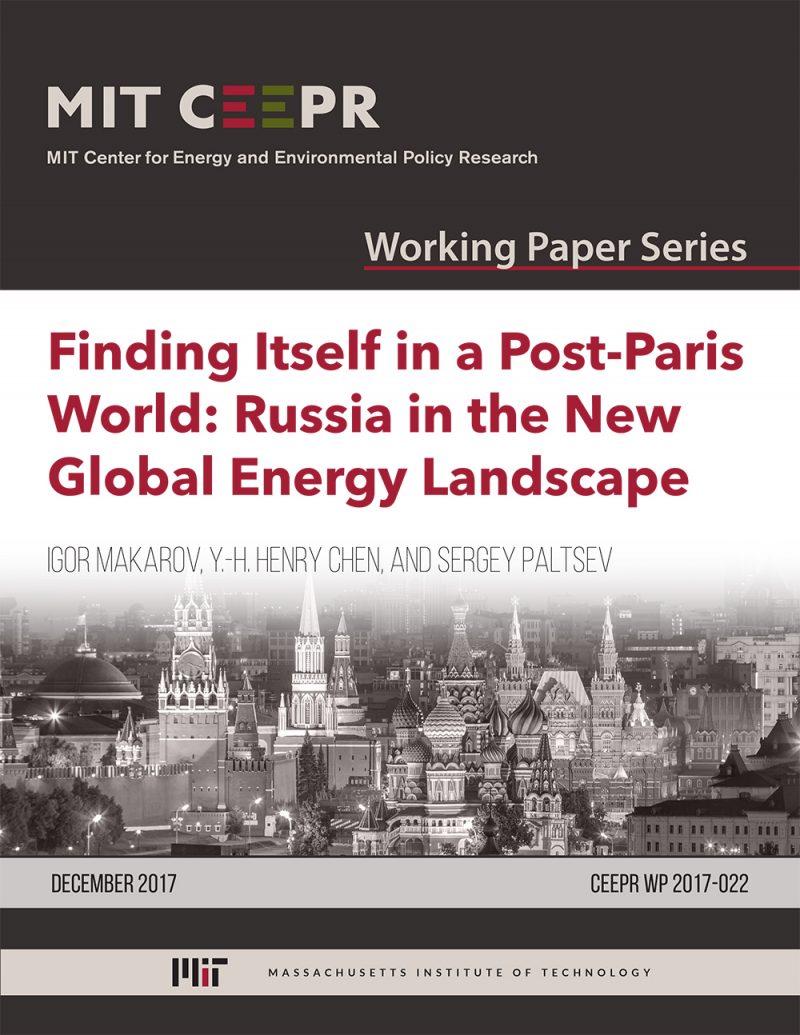Finding Itself in the Post-Paris World: Russia in the New Global Energy Landscape
Igor Makarov, Y.-H. Henry Chen, and Sergey Paltsev
December 2017
The Russian budget relies heavily on exports of fossil fuels, which are the major source of greenhouse gas (GHG) emissions. Climate-related policies that target a reduction in GHG emissions substantially affect the Russian economy. We apply the MIT Economic Projection and Policy Analysis (EPPA) model to assess the impacts of the Paris Agreement on the Russian economy and find that climate-related actions outside of Russia lower Russia’s GDP growth rate by about a half of a percentage point. In addition, Russia faces the risks of market barriers for its exports of energy-intensive goods as well as risks of falling behind in development of new energy technologies that become standard in most of the world. In order to address these risks, the country needs a new comprehensive development strategy taking into account the Post-Paris global energy landscape. We offer suggestions for key elements of such a strategy, including diversification of economy, moving to low-carbon energy, and investing in human capital development. We simulate three simple diversification scenarios showing that redistribution of incomes from energy sector to the development of human capital would help avoid the worst possible outcomes.



